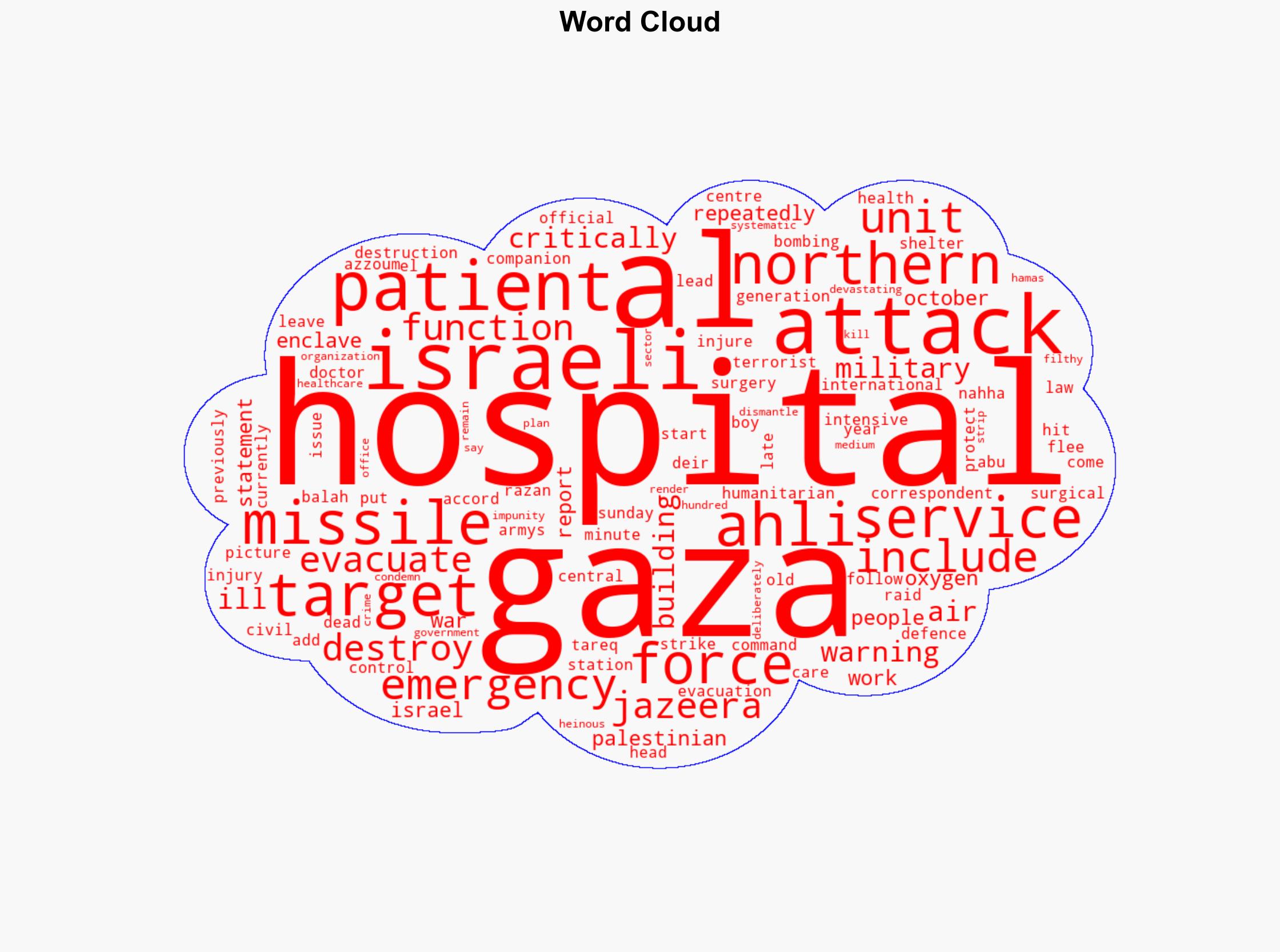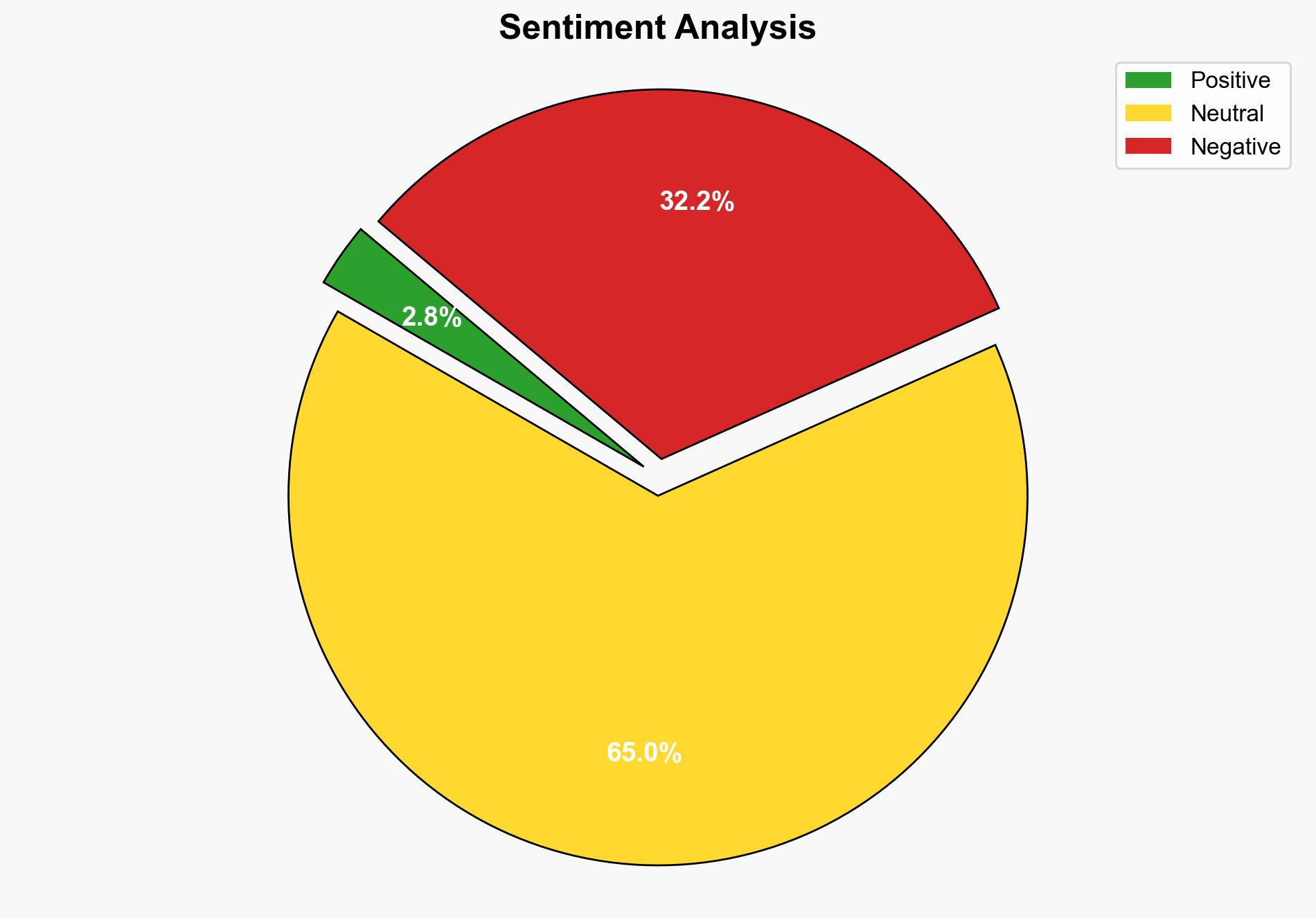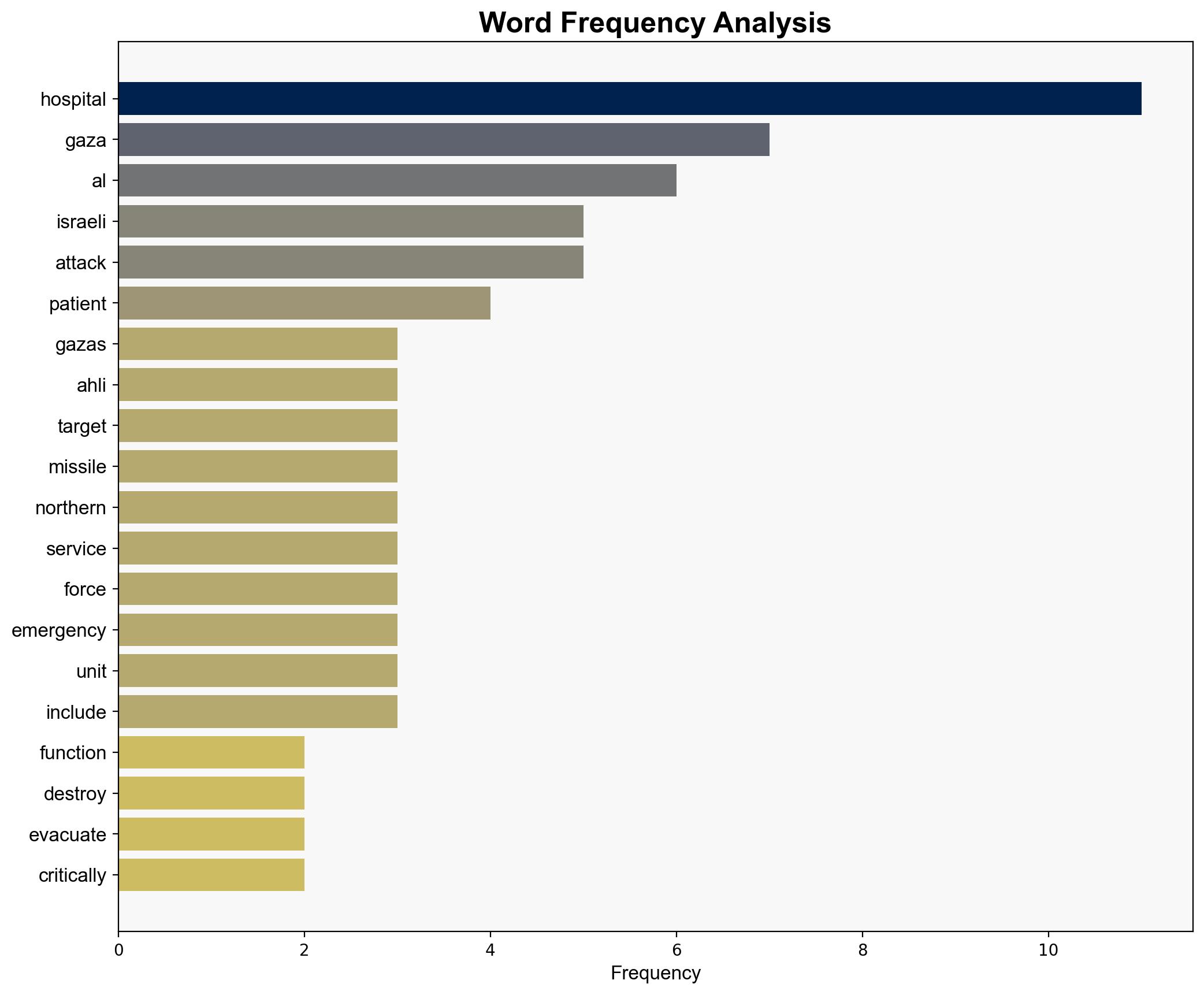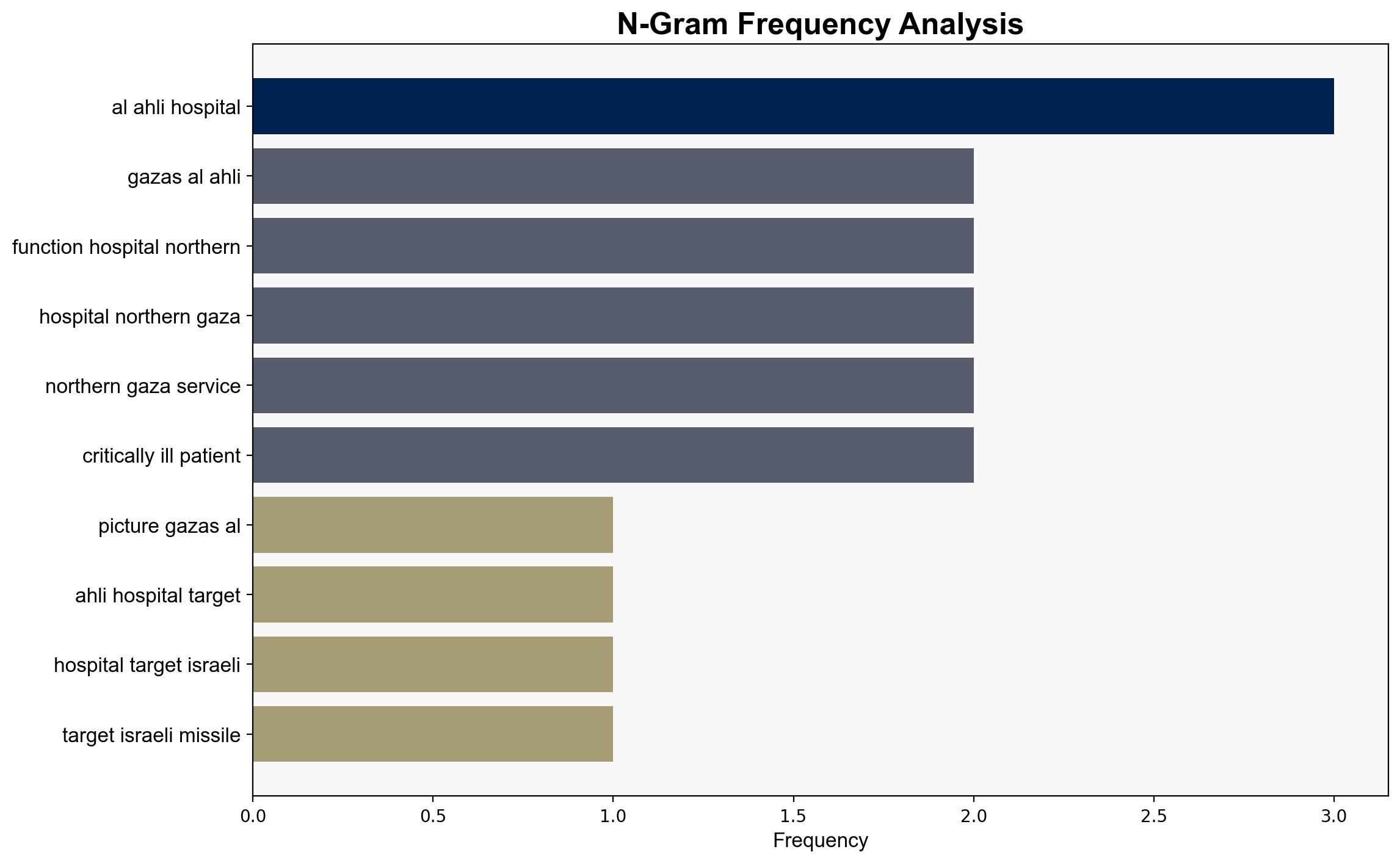Gazas al-Ahli Hospital targeted by Israeli missiles – Al Jazeera English
Published on: 2025-04-13
Intelligence Report: Gazas al-Ahli Hospital targeted by Israeli missiles – Al Jazeera English
1. BLUF (Bottom Line Up Front)
The recent missile attack on Gaza’s al-Ahli Hospital by Israeli forces has rendered the last functioning hospital in northern Gaza out of service. This event has escalated the humanitarian crisis in the region, with critically ill patients left without necessary medical care. The attack, justified by Israel as targeting a “command and control” center, has drawn international condemnation and highlights the ongoing risks to civilian infrastructure in conflict zones. Immediate strategic actions are required to address the humanitarian needs and mitigate further escalation.
2. Detailed Analysis
The following structured analytic techniques have been applied for this analysis:
General Analysis
The targeting of al-Ahli Hospital represents a significant escalation in the conflict, impacting both the humanitarian situation and international perceptions. The destruction of critical medical infrastructure exacerbates the health crisis in Gaza, leaving vulnerable populations without access to essential services. This incident is part of a broader pattern of attacks on civilian infrastructure, raising questions about compliance with international humanitarian law. The strategic narrative from Israel suggests a focus on dismantling perceived threats, while Palestinian sources emphasize the humanitarian impact and legal violations.
3. Implications and Strategic Risks
The attack on al-Ahli Hospital poses several strategic risks:
- Humanitarian Impact: The destruction of medical facilities increases the risk of a health crisis, with potential outbreaks of disease and increased mortality rates.
- Regional Stability: Continued attacks on civilian infrastructure may lead to heightened tensions and potential escalation of conflict in the region.
- International Relations: The incident may strain diplomatic relations and increase calls for international intervention or sanctions.
4. Recommendations and Outlook
Recommendations:
- Facilitate immediate humanitarian aid and medical support to affected areas to address urgent health needs.
- Engage in diplomatic efforts to establish a ceasefire and protect civilian infrastructure under international law.
- Encourage transparency and accountability through independent investigations into attacks on civilian sites.
Outlook:
Best-case scenario: A ceasefire is established, allowing for humanitarian aid and rebuilding efforts to commence, stabilizing the region.
Worst-case scenario: Continued attacks lead to a full-scale humanitarian crisis, with significant loss of life and further destabilization of the region.
Most likely outcome: Ongoing conflict with intermittent escalations and international diplomatic efforts to mediate and provide humanitarian relief.
5. Key Individuals and Entities
The report mentions several key individuals and entities involved in the incident:
- Tareq Abu Azzoum – Reported from Deir el-Balah in northern Gaza.
- Razan al-Nahhas – Provided insights on the impact of the hospital attack.
- Israeli military – Justified the attack as targeting a “command and control” center.
- Gaza’s Government Media Office – Condemned the attack as a deliberate destruction of healthcare infrastructure.




